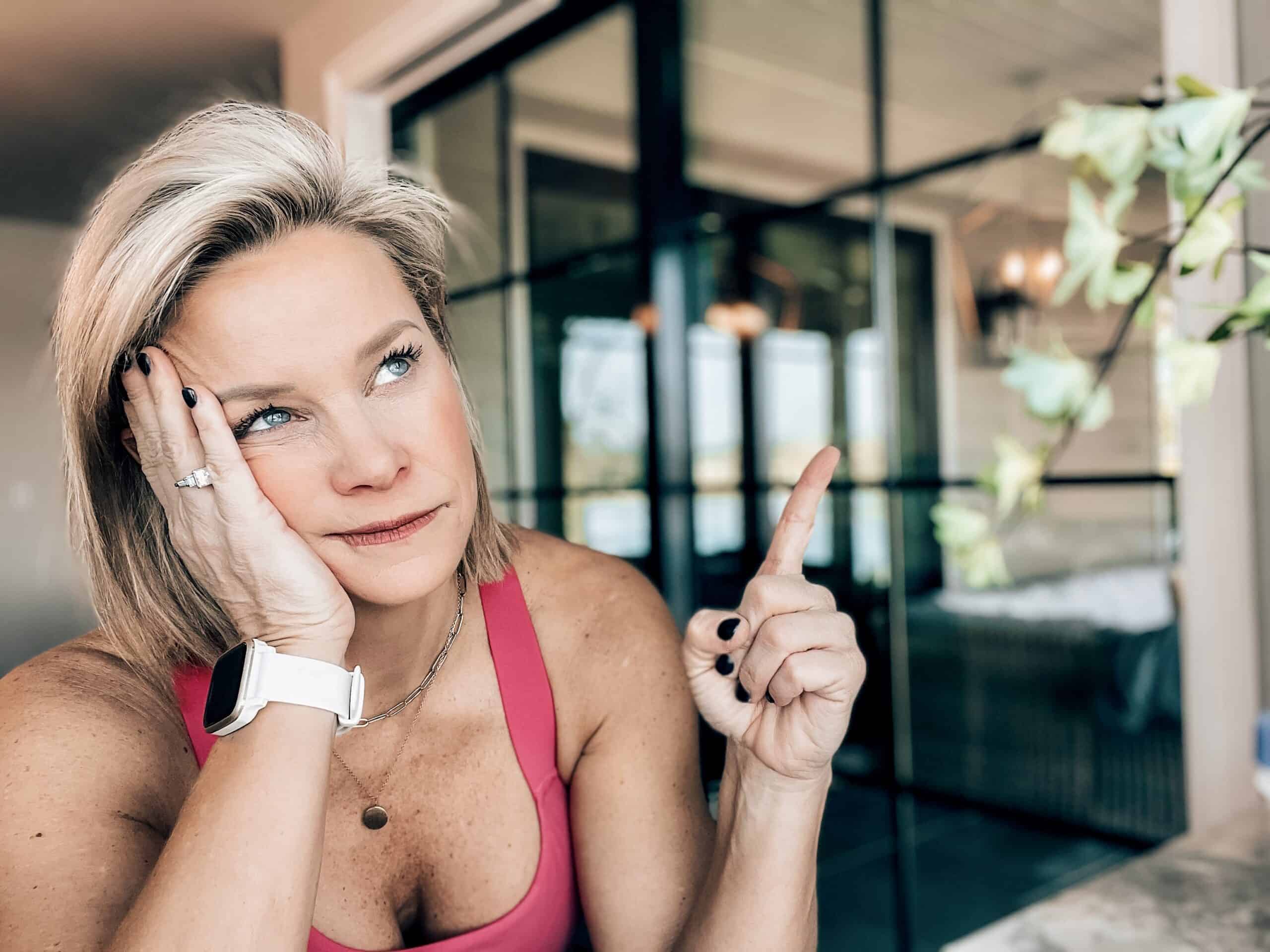Are you hungry, hangry, munchy, or grouchy?
Sometimes our bodies can send us hunger signals when we really don’t need another meal or snack.
Here’s how to tell whether your hunger signals are physical or emotional so that you can give your body what it really needs.
Why Do Emotions Make Us Hungry?
Food can soothe and suppress negative emotions, like stress, anger, fear, boredom, sadness, and loneliness.
Ever absentmindedly nosh on too many chips while finishing a stressful work assignment? Grabbed that extra bar of chocolate when you’re feeling down? Or crashed on the couch with a bowl of Captain Crunch when you’re bored or lonely?
Eating when we’re feeling a negative emotion can help us escape, numb, or even amplify our feeling. This coping strategy is incredibly common, with about 75% of our eating driven by emotions!
While an occasional overindulgence is perfectly ok, its better for our longterm health to feed ourselves with food when we’re physically hungry and address our emotional needs head on. Oftentimes, the food we crave when we’re feeling negative emotions actually harm our mental health and make us feel worse in the long-run.
So why does our body send us these signals in the first place?
Our ancient biology tells us that we need all the calories we can get when we’re in an alarming or upsetting situation. We crave the sugary, fatty, or salty foods that are calorically high. After eating, our brains release dopamine and serotonin, which give us a ‘feel good’ sensation and ease our emotional discomfort.
What Causes Emotional Eating?
At its root, emotional eating can be caused by extreme dieting, anxiety, and unaddressed upsetting situations. But one of the main reasons behind emotional eating is the difficulty distinguishing between physical and emotional hunger.
If you, like many of us, struggle to distinguish between emotional and physical hunger cues, here are a few clear signs to learn that can help you tell the difference:
Signs of Real, Physical Hunger
- Your hunger comes on slowly
- You crave a variety of foods, not just junk food
- You feel the sensation of fullness after you’ve eaten a meal
- You don’t feel guilty or ashamed after eating
- You feel physically rejuvenated and energized after eating
Signs of Emotional Hunger
- Your hunger comes on suddenly
- You crave a specific food that’s usually nutritionally unhealthy
- You may binge and still feel unsatisfied
- You feel guilt and shame around eating
- You feel physically worse or more apathetic after eating
How to Manage Emotional Eating
Want to get to the bottom of emotional eating and curb it? Try out these strategies to manage emotional eating:
Get to the root of the problem
If you are seeing the signs of fake, emotional hunger, take ten seconds to consciously check in with yourself. Notice any negative emotions, tightness in your chest, or external circumstances that are impacting how you feel. Awareness of what you’re really feeling (loneliness, not hunger for example) can help you recognize what you really need.
Acknowledge that food only offers temporary relief, at best
Emotional eating uses food to make us temporarily feel better, but it certainly doesn’t solve the problem we’re facing. Acknowledging this fact can help you make a conscious decision about whether or not you want to eat and what type of food would give you the energy you need to actually address the problem.
Give yourself what you really need
Chips won’t change things. Instead of filling your belly when life is feeling hard, fill your emotional needs. Tackle that stressful project you’ve been procrastinating on. Try out that hobby you’ve always considered if you’re struggling with boredom. Talk to a friend, partner, or professional counselor to receive the real support you need.
Don’t skip meals either
Keep your body nourished. Sometimes the craziness of the day can lead to skipping meals, and then eating a bag of pretzels for dinner. When you’re feeling down or stressed, this is the time to pay extra attention to what you’re eating, and have a support system in place (like delivery) to nourish yourself with great foods. Some examples include fruits, vegetables, and foods rich in omega-3 fatty acids, like salmon.
Keep up with your other healthy habits
Remember that health includes much more than your body weight. Take some time to address other aspects of your health by going on more walks outside, prioritizing your sleep, spending time with loved ones, or signing up for a stress-relieving yoga class with a friend.
Let’s Work on Emotional Eating Together
Many people struggle with trying to quick-fix negative emotions and circumstances with food. I’m so guilty of emotional hunger! When life gets stressful, I’m quick to turn to food.
Now that I’ve learned the difference between physical and emotional hunger, though, its much easier for me to identify in the moment what I really need!
Do you struggle with emotional eating too? Let’s work on this together and practice giving ourselves what really heals and helps—whether that is a nutritious meal or a good conversation wtih a friend.
For more practical tips on how to be healthier and happier, sign up for my weekly newsletter here. If you have bigger goals for your health and future, you’ll love the LEAN program! See how LEAN has helped thousands of others reach their health and weight loss goals!





